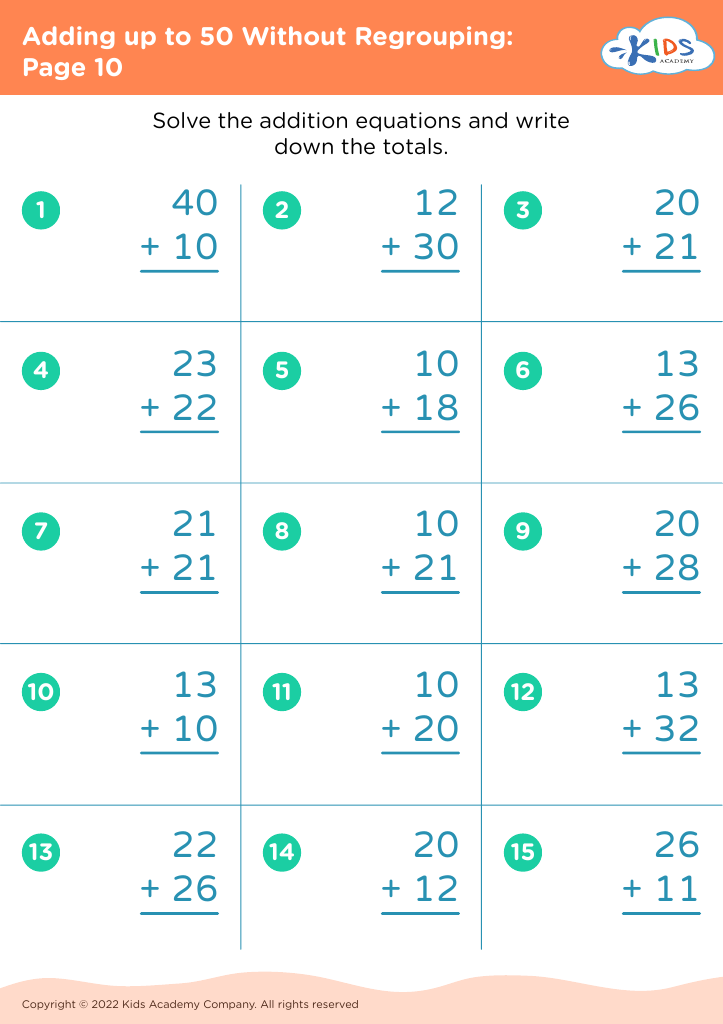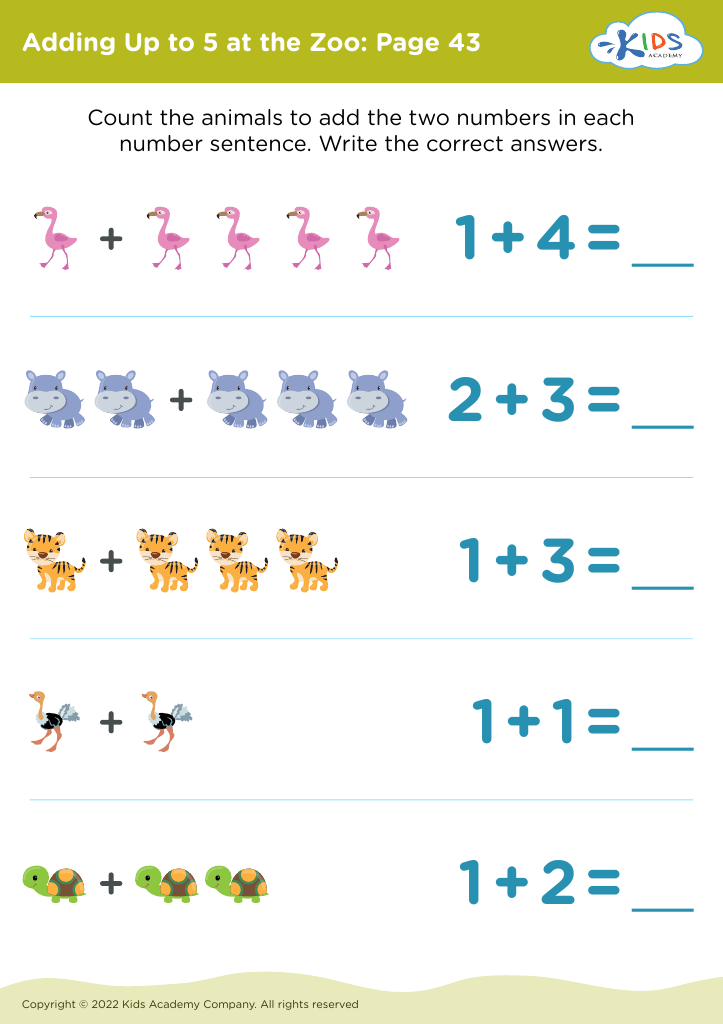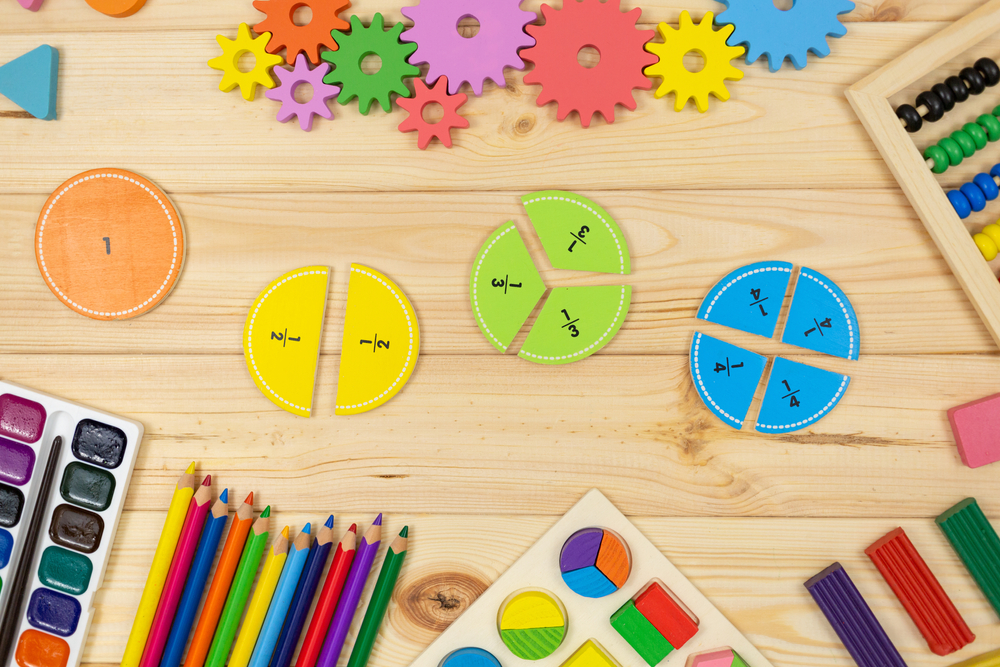Mathematical thinking Worksheets for Ages 5-9
7 filtered results
-
From - To
Enhance your child's mathematical skills with our engaging Mathematical Thinking Worksheets designed specifically for ages 5-9. These printable resources aim to cultivate a strong foundation in essential math concepts through fun and interactive activities. Each worksheet encourages critical thinking and problem-solving, tailored to the developmental needs of early learners. Topics include basic addition and subtraction, patterns, shapes, and sequences, making math enjoyable and accessible. Parents and educators can easily integrate these worksheets into daily learning, fostering a love for math in young minds. Invest in your child's future success and develop their confidence with our thoughtfully designed math worksheets today!
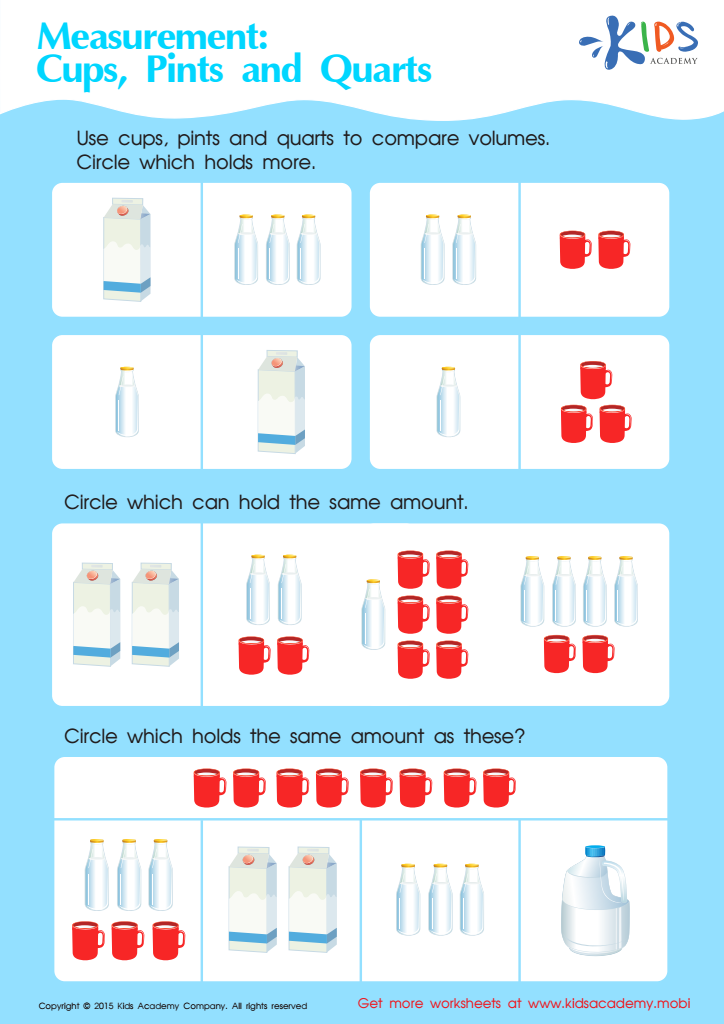

Measurement: Compare Volumes Worksheet
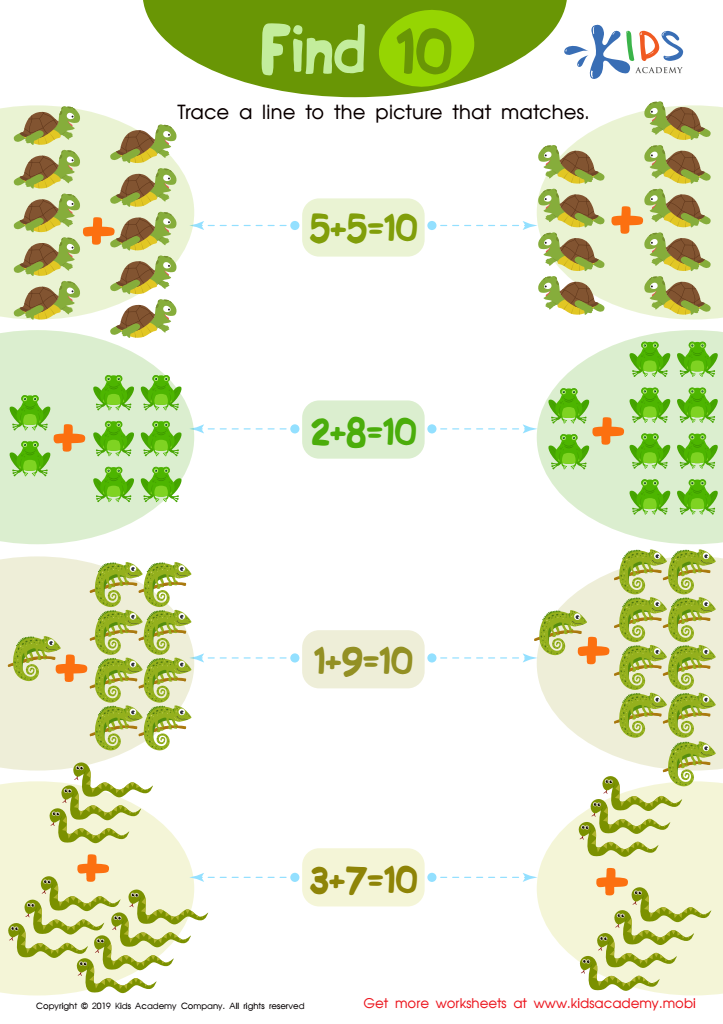

Find 10 Worksheet
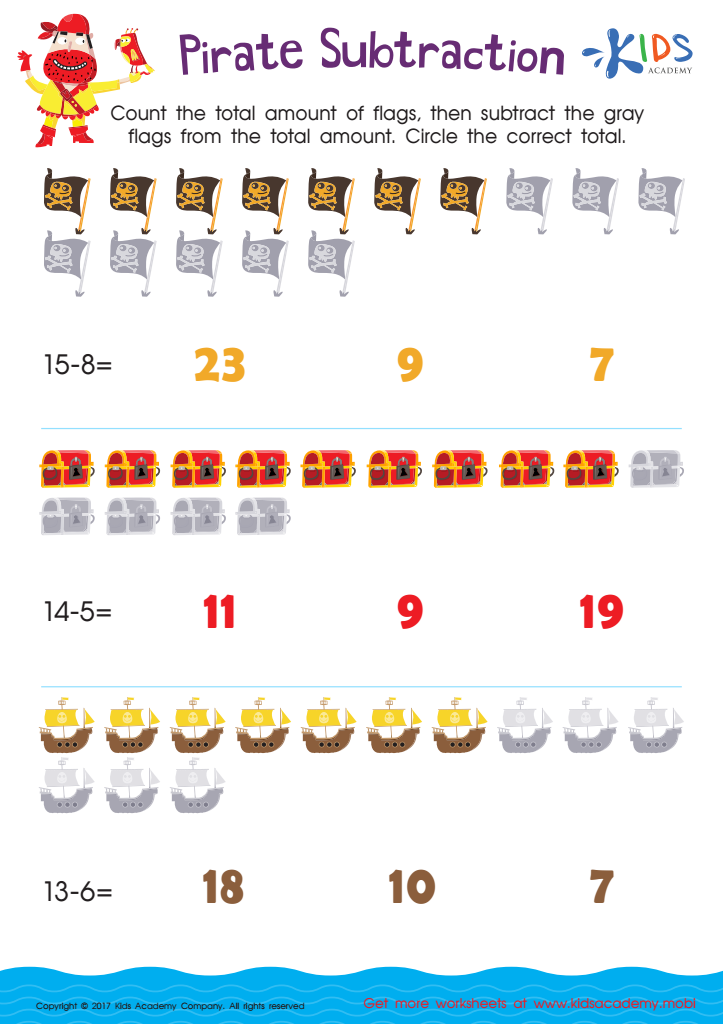

Pirate Subtraction Substraction Worksheet
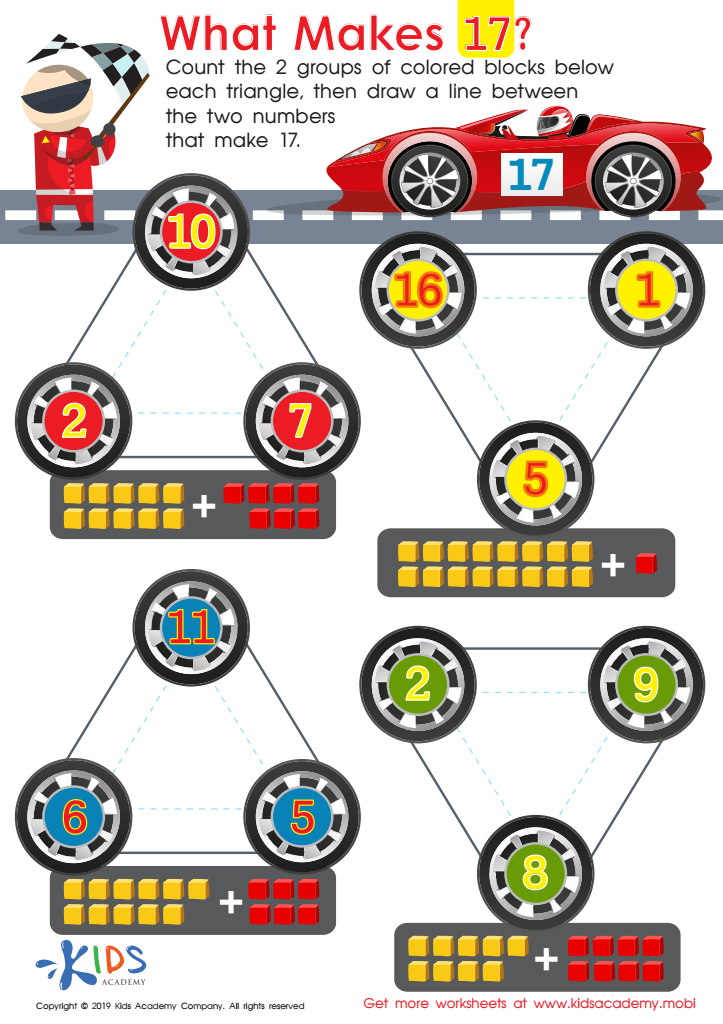

What Makes 17 Worksheet
Mathematical thinking for children aged 5-9 is crucial for several reasons. First, it lays the foundation for all future learning in math and related subjects, promoting skills like problem-solving, critical thinking, and logical reasoning. These young years are formative; children begin to see patterns, understand number concepts, and develop spatial awareness, which are vital for understanding how the world works.
Engaging children in mathematical thinking enhances their ability to synchronize different types of information and encourages creativity. By fostering early math skills, teachers and parents can help children build confidence in their abilities, which is essential for their overall self-esteem.
Moreover, mathematical thinking enables children to approach everyday situations, from counting coins to understanding time and measurements. Developing these competencies helps prepare them for the increasingly complex demands of higher education and practical life situations.
Parents and teachers play a pivotal role in nurturing this thinking process. By providing supportive environments, challenging nature of tasks, and hands-on experiences, they can instill a love for math that lasts a lifetime. Ultimately, investing in mathematical thinking is investing in a child's future success, opening up opportunities in STEM careers and enhancing their analytical skills in all disciplines.
 Assign to My Students
Assign to My Students

